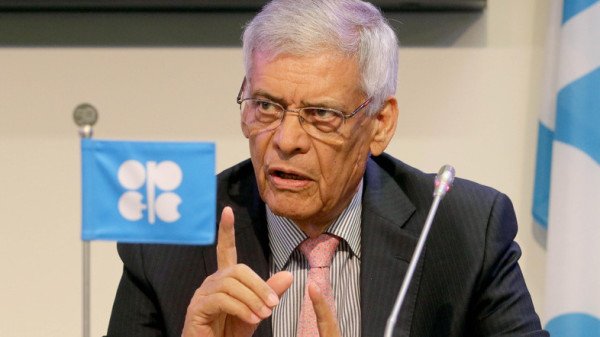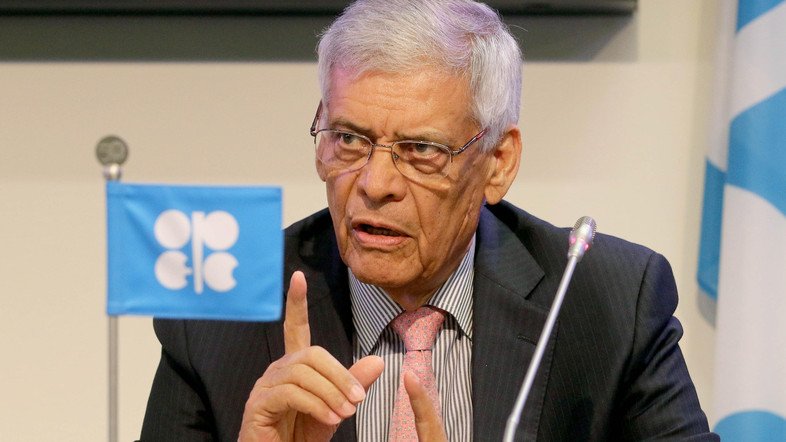Oil prices fell again on January 25, eroding last week’s gains, as OPEC called for co-operation from oil-producing nations outside the cartel.
Brent crude fell 2.6% to $31.34 a barrel following a 10% rise on January 22, while US oil shed 95 cents to $31.24.
The slide came as the head of OPEC called for all oil-producing nations to work together.
Abdalla Salem el-Badri said both OPEC and non-OPEC oil producers needed to tackle oversupply to help prices rise.
“It is vital the market addresses the issue of the stock overhang. As you can see from previous cycles, once this overhang starts falling then prices start to rise,” he told a conference in London.

Despite the ongoing refusal of Saudi Arabia, the dominant OPEC member, to cut production, Abdalla Salem el-Badrinevertheless blamed countries outside the cartel for the huge global oil glut.
“Yes, OPEC provided some of the additional supply last year, but the majority of this has come from non-OPEC countries,” he said.
The organization accounts for almost 42% of the world’s oil production.
The OPEC secretary-general said all major producers should agree on methods to reduce stockpiles and thus help prices recover.
“The current environment is putting this future at risk. At current price levels, it is clear that not all of the necessary future investment is viable,” Abdullah al-Badri said.
Oil prices briefly fell to less than $28 a barrel earlier this month.
HSBC has lowered its forecast for the average price of Brent crude in 2016 from $60 to $45 a barrel, while UniCredit lowered it from $52.50 to $37 a barrel.
The prospect of OPEC members cutting production remains unlikely. Indonesia’s OPEC representative said that only one member of the cartel supported calling an emergency meeting to discuss ways of boosting oil prices.
The chairman of Saudi Aramco, the state-owned oil giant, said on January 25 that prices would ultimately rise to a moderate level as global demand increased.
The Iraqi government said on the same day that oil output reached a record high in December, producing as much as 4.13 million barrels a day.
Iran, which has the world’s fourth-biggest oil reserves, is also preparing to resume exports now that sanctions have been lifted.
A fall in the number of oil rigs in the US, one of OPEC’s biggest production rivals, could reduce output, with Goldman Sachs predicting a decline of 95,000 barrels per day this year.
